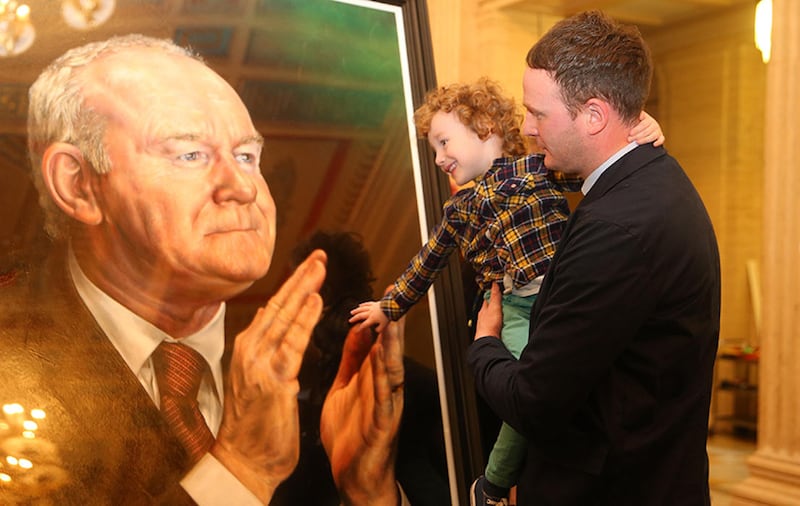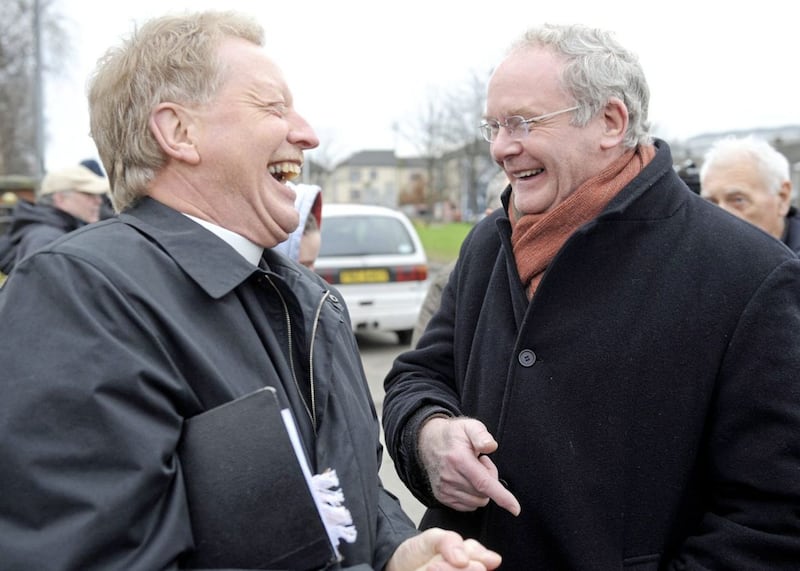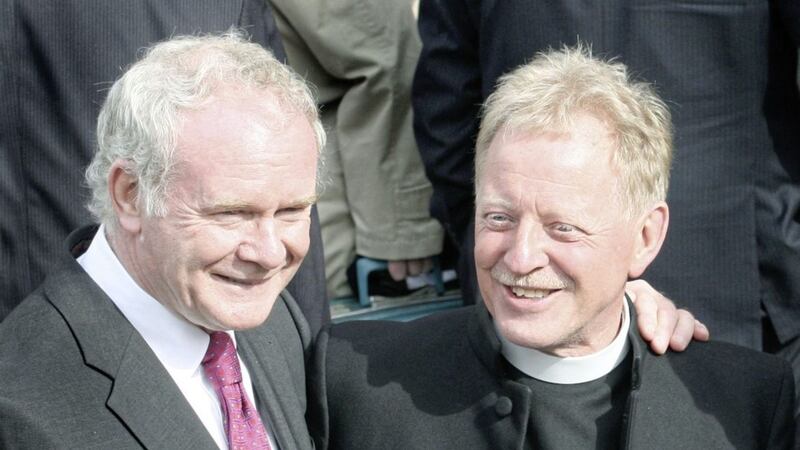I first heard of the Rev David Latimer when he addressed Sinn Féin's Ard Fheis in the Waterfront Hall in Belfast in 2011.
My initial impression was that he was just 'another patsy token Protestant,' dragged along to make it look as though Sinn Féin was serious about outreach. So I wasn't expecting very much. But I was struck by these comments about Martin McGuinness: "You and I have been journeying together for the past five years and during that time we have become very firm friends, able to relax in each other's company. While our interaction might, understandably, raise an eyebrow amongst some in our communities the reality is, you and I regard ourselves to be brothers within the same human family; a diverse worldwide family, which despite all its flaw and imperfections is loved by God, the Maker of everything that lives and moves.'
Latimer was able to build a friendship with McGuinness based partly on Christian duty and partly on a particularly intimate personal understanding of him. Many Christians - both Catholic and Protestant - and many more unionists, were and remain discomfited by this friendship. Latimer makes much of the numbers of people who shook his hand and wished him well after the Ard Fheis address; but he must have known that it's too easy to fall into the trap of believing that, on those occasions, you're more popular and genuinely supported than you really are.
When his recent memoir, A Leap of Faith, How Martin McGuinness and I Worked Together for Peace, was published a couple of weeks ago, I was surprised how many unionists I spoke to were angry about it. "Why does he insist on eulogising that monster," was how one put it to me. A Presbyterian minister emailed, ''David still doesn't understand that he speaks for only a tiny minority of our community.''

And yet as I read this memoir I couldn't help thinking that Latimer has a valid, important point to make. Until there comes a time when an eyebrow isn't raised by this type of friendship then there won't be a peace process worth speaking of. That process has to be built on personal friendship and trust and not just on political convenience. Paisley and McGuinness seemed to manage it. Robinson and McGuinness built a different kind of friendship, but it was a friendship. The fact that McGuinness is the common factor in these three friendships gives credence to Latimer's observation that it was, 'his passion to create a new order of cooperation where we would live in a relationship, not out of relationship and get to know one another.'
Read More:
- 'We were as close as brothers': David Latimer pens book about Martin McGuinness
- Friendship with Martin McGuinness 'nearly led to David Latimer's sacking as army chaplain'
- David Latimer: My friendship with Martin McGuinness and why we need to embrace his generosity of spirit
Yet a peace process has to be bigger than one man. It has to be deeper and broader based. Many of Latimer's critics - and there are many - argue that he was too willing to see the narrative through McGuinness's eyes. But he also said this in his address: "As a clergyman I only wish I could somehow provide victims, in both our communities, with a ready-mix-and-stir formula that would relieve their pain and wipe their tears. Regretfully, that is beyond the ability of any mortal individually to deliver. However, it would be helpful for broken and bruised people to know it is acceptable for bereaved Protestants to articulate a story of the past and for bereaved Catholics also to articulate a story of the past. While both sets of stories will not be the same, each story needs to be recognised as real and personal. Therefore rather than airbrush personal stories of hurt there is a collective requirement for a spirit of maturity to be fostered whereby it will be possible for different stories pertaining to the past to be fairly acknowledged."
It seems to me that too many of the bereaved Latimer speaks of still feel they can't articulate their own story. The bereaved from both communities believe that no one is listening to them. Nothing about their past is, in their eyes, 'fairly acknowledged.' Those wanting to know the truth about why their loved ones were killed by the IRA will find no solace in these lines from Latimer's eulogy: "Today we thank God for Martin McGuinness. At some point in the future we shall, by God's amazing grace, praise God with him in the heavenly places."

Latimer's leap of faith remains in mid-air. The peace he and McGuinness worked for is hanging by a thread because the friendships required at crucial moments like this seem to be non-existent. He appears to be trusted by key players within Sinn Féin and I hope he will use that trust and influence to continue to press upon them the need to begin again the sort of outreach that McGuinness pioneered. At the same time he also needs to reach into the unionist/loyalist community at leadership level. This memoir suggests that he is no patsy. He needs to keep on building and nurturing new friendships.








